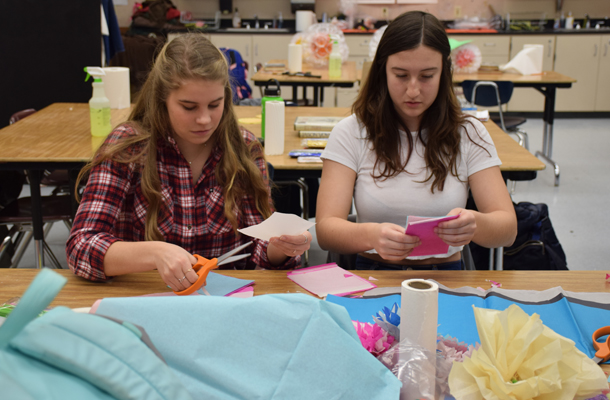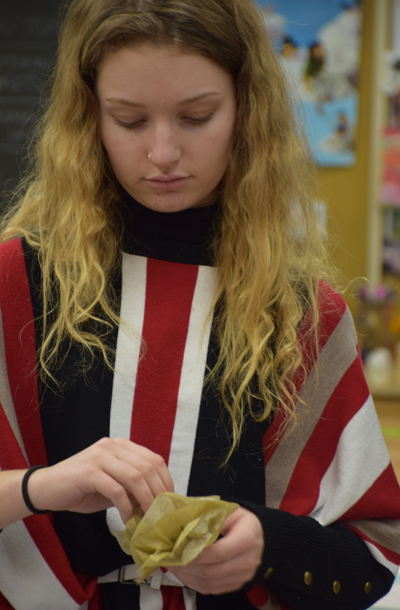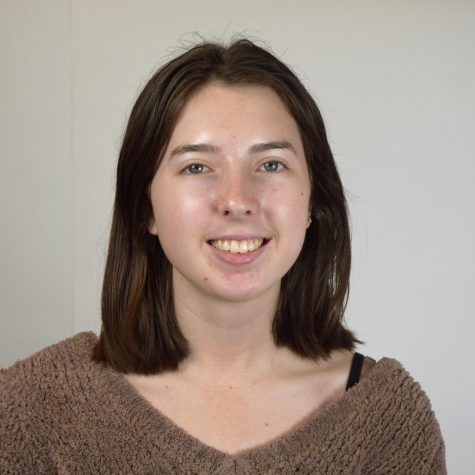Block Schedule Allows Project Based Learning
January 25, 2018
To accommodate the longer periods inherent to the block schedule, teachers are using nontraditional methods of instruction like Project Based Learning to keep students engaged and productive.
Project Based Learning (PBL) is a method in which longer periods of time are used by students to solve a complex question or challenge based on certain learning goals, according to Buck Institute of Education.
Biotech teacher Jay Chugh is a proponent of the PBL format. He first explored it at the AUHSD Summer Institute, a 3-day professional development opportunity provided by the district in August. The intent of the institute offering Chugh attended was to support teachers in the development of curriculum for the transition to the new block schedule.
Chugh said, “I’ve always enjoyed doing projects, but I feel that the new schedule is a tremendous opportunity to be more creative and empower students with more real-world, skill-based projects.”
Chugh finds the new 90-minute periods are perfect for PBL.
A more traditional style of teaching with lectures and note taking, is not effective at engaging modern students who often struggle to maintain attentiveness. “The best way to learn is not to sit looking at a slideshow presentation taking notes,” Chugh said.
According to the Buck Institute, PBL strategies also better incorporate new Common Core standards for real-world applications.
Chugh has shared the benefits of PBL with his Campolindo colleagues at a recent faculty meeting in January as part of a district-wide effort to help teachers transition to best practices for the block schedule format.
Chugh already uses projects, such as a claymation video assignment in which students illustrate various biological processes, that are based on the principles of PBL.
English teacher Thomas Duffy also intends to use aspects of PBL with his students. Duffy believes that PBL “will make the end of the year projects way better than they were!” However, he doesn’t think that PBL is an entirely new concept in the English department.
“I think all Campo English teachers use project based learning in some way. Some ideas and skills can be taught more effectively with more traditional methods, and some work better in a project based context. The cool challenge for teachers is to keep working to figure out what works best,” Duffy explained.
Duffy does believe that the block schedule is more convenient for employing PBL.
While English and science classes are successfully using aspects of PBL, its implementation across all curricular areas is an ongoing challenge. “It’s harder in Math because they have tests, so they have to prepare kids for the test and help them enjoy the process of learning and develop the skills they need for college and for their careers,” Chugh said.
PBL may be less effective for students in courses like math and language where repetition is needed to reinforce skills and build a foundation of specific knowledge like vocabulary.
French teacher Ed Willy said, “Everyday meeting is definitely a different style of teaching… you do lose a little bit, certain things.”
Rather than worry about what his French students have lost as a result of the transition to the block schedule, Willy is concerned about how to effectively assess student participation and award scores in PBL that includes collaboration. If the score is awarded based on the final product, then there is the possibility that some students in the group are more deserving of the grade than others depending on how much they actually contributed during the process. “But on the flip side,” Willy said, “as long as you are giving individual grades in group projects it can be just as fair and just as good.”
Willy’s French 4 and 5 courses are mostly project based, featuring in-class debates. Willy said his role is to act more like a coach and let the students do the work during PBL. “It’s less teacher involvement and more student,” he said.
As for Duffy, he summarized his experience with PBL so far as “exciting!”


